Today we set our sights on somewhere far afield – Swallows Track which loops through Herbert Forest in North Otago.
We set off northwards out of Dunedin and headed over the Kilmog. I’ve always imagined “the Kilmog” to be a huge sleeping dragon over which we have foolishly built a highway, but apparently the word derives from the Maori name for a type of manuka. Another childhood theory quashed.
We passed Waikouaiti and Palmerston and cruised the scenic stretch of highway around Moeraki. So many interesting places! So many potential adventures!
Finally we turned on to the ominous sounding Breakneck Rd just south of Herbert. This took us past a rail tunnel under the highway and over the north branch of the Waianakarua River. Once across, we took a left turn on to Reid Rd and soon found the turn off into the bush-girt car park.
As soon as we entered the narrow bushy valley, we were greeted by an assortment of native birds – fantails, bellbirds and some teeny-tiny ones I couldn’t identify.
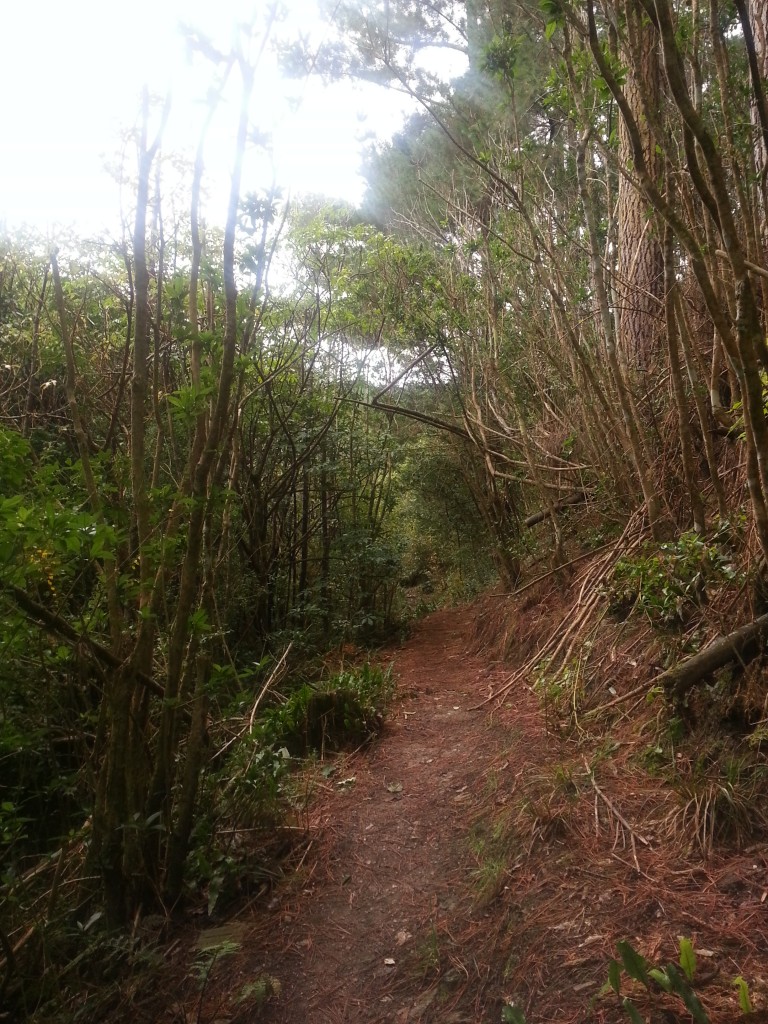
Then we entered the forest proper and began to climb. I spotted a huge rimu, which judging by its size could be even older than the ones at Craigieburn. Could it be that this tree was here before any human had ever set foot in New Zealand?
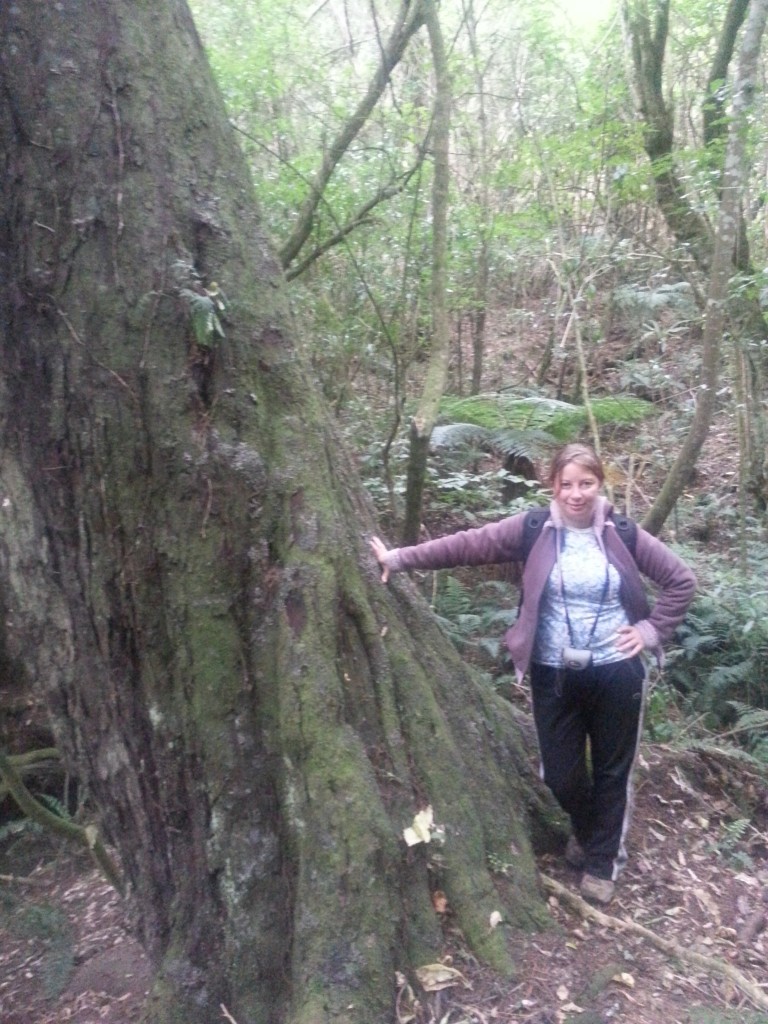
We crossed a small creek into steeper terrain beyond.
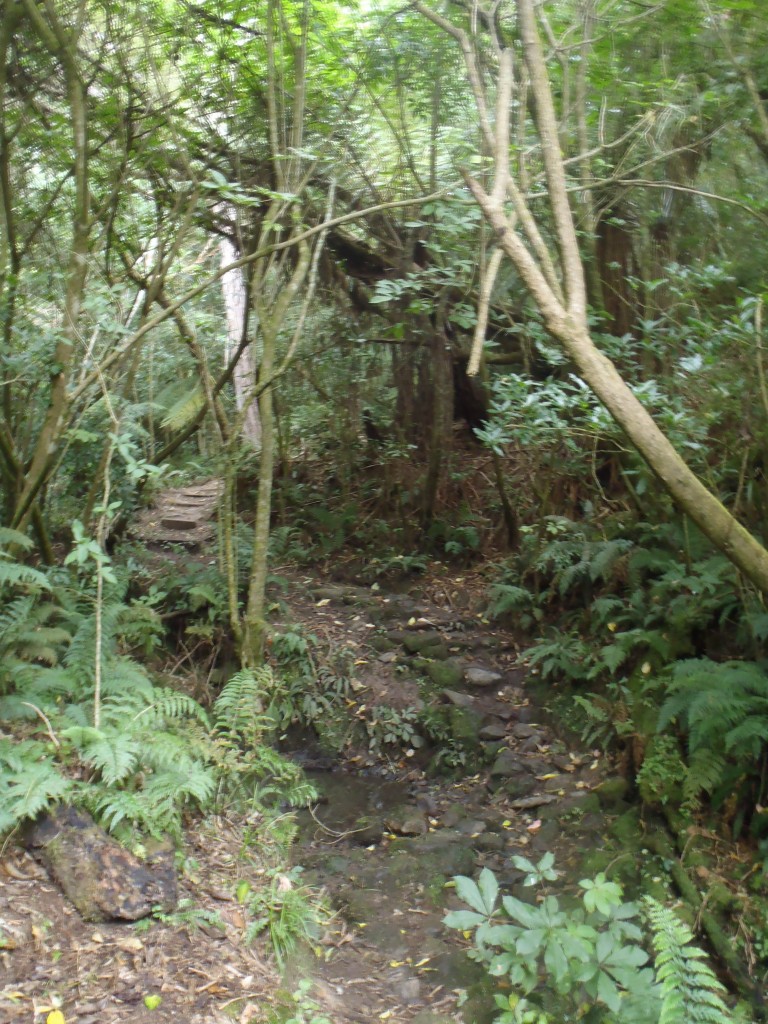
After much puffing we reached a little yellow sign beneath a stone outcrop, announcing the presence of a cave just above. Of course I investigated, finding a room-sized hollow beneath the overhang.
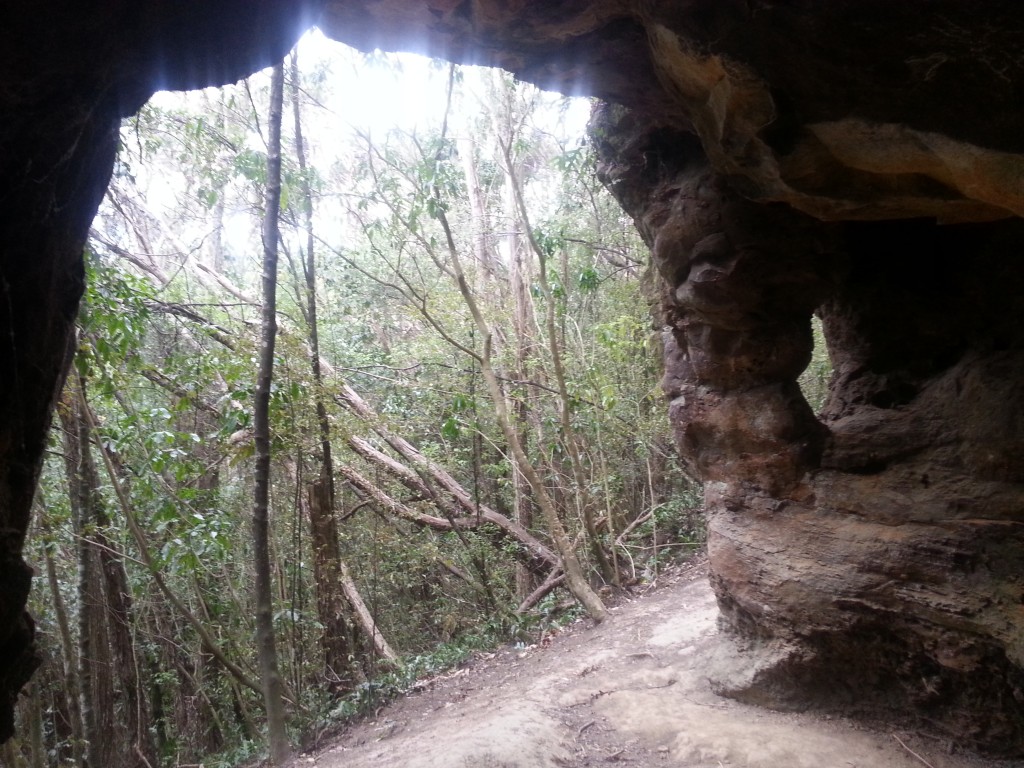
Not far beyond we left the chaotic tangles of the native bush and stepped into an even and orderly plantation. The ground was blanketed by creeping hounds tongue fern(kowaowao), the undersides of the leaves dotted by orange clusters of spores.
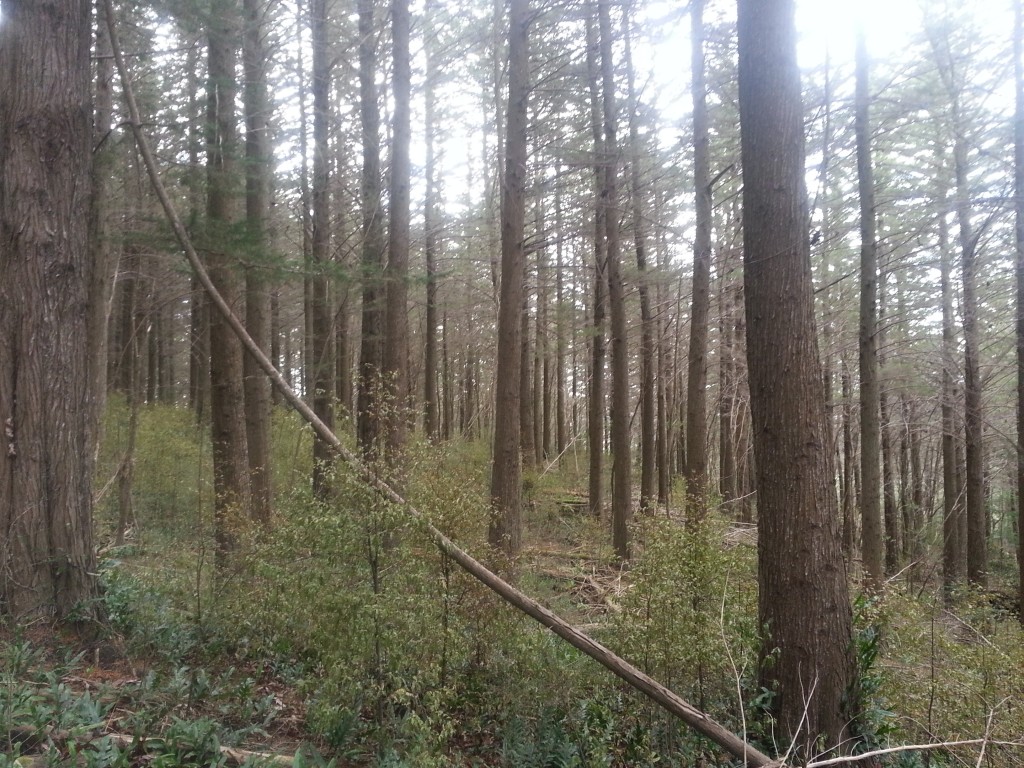
We emerged into a clearing where we were given the choice of returning to the car park by continuing on the Swallows track, or setting off deeper into the wilderness for the much longer 4.5 hour loop. Cowards that we are, we stuck to the Swallows track.
We headed down a dirt furrow walled by gorse and young pines, which looked as if it must double as a stream on wet days. Luckily the few spots of rain we were experiencing were not enough to cause any drama.
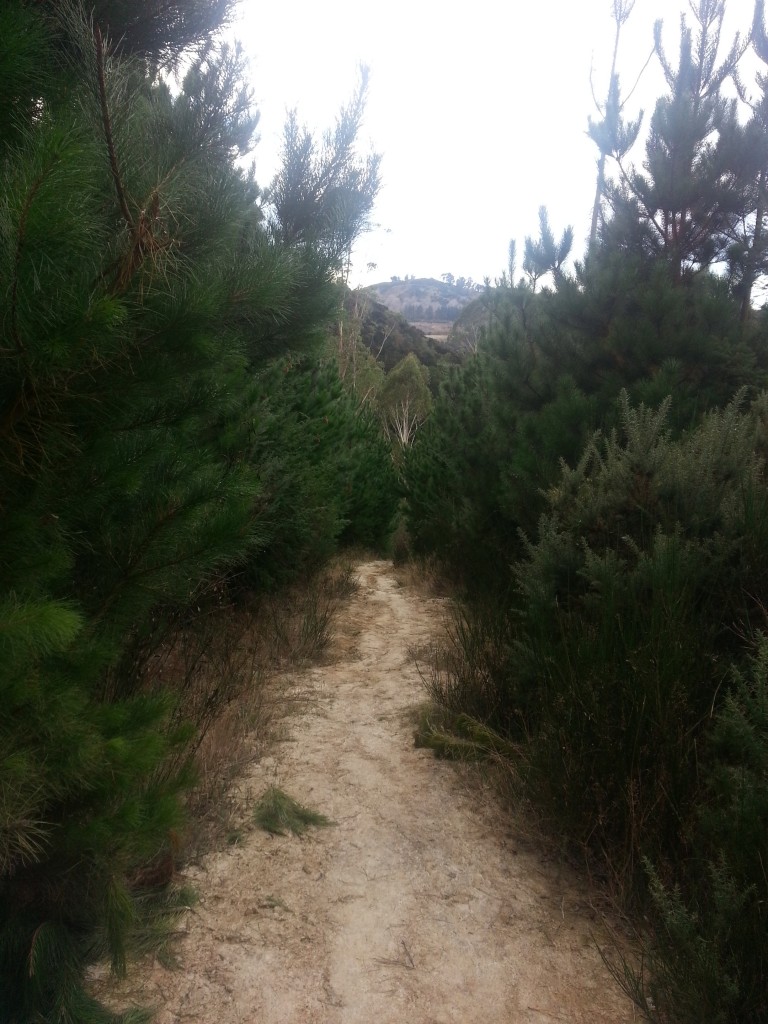
We caught some neat views across the farmland to the north, then had to negotiate some tricky steps carved in the stone to get down onto a gravel road.
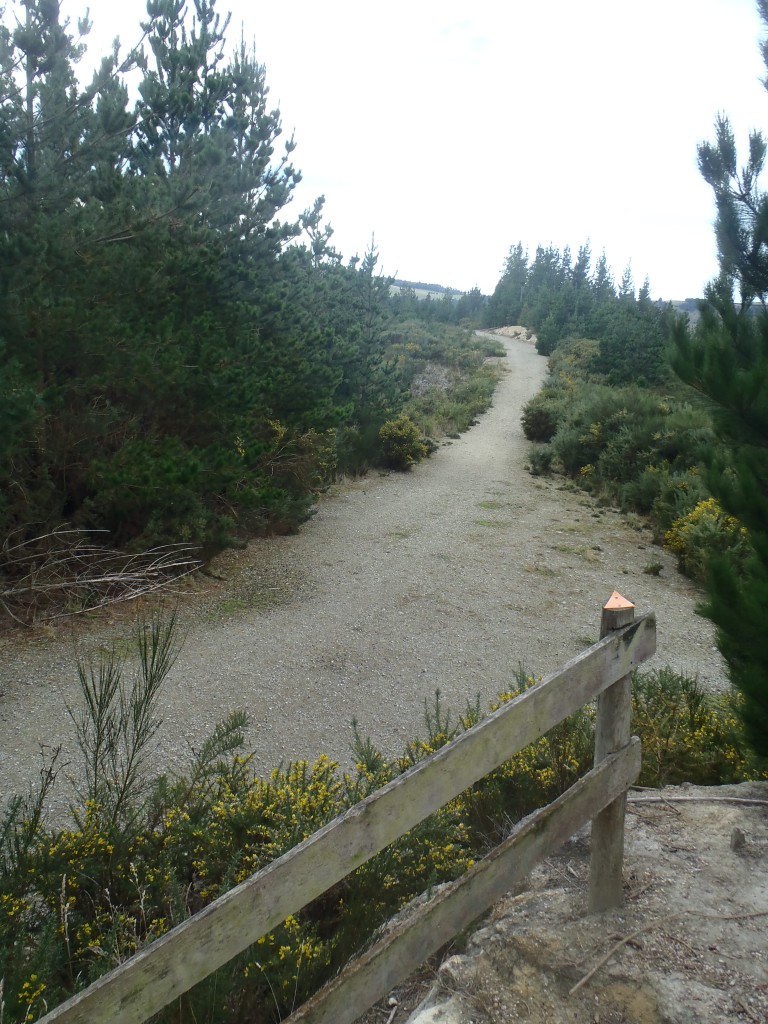
We followed this until it petered out and once again became a narrow dirt trail. I was just admiring a stand of gum trees ahead when I stumbled unexpectedly out into the car park where we had started. The easy downhill pace had tricked me into thinking we hadn’t got quite so far! All in all it was a pleasant little walk with varied terrain and some neat flora and bird life along the way.
We had just begun our long journey home when I caught site of the arc-shaped Graves Dam across the north branch of the Waianakarua. Of course we had to stop and check it out.
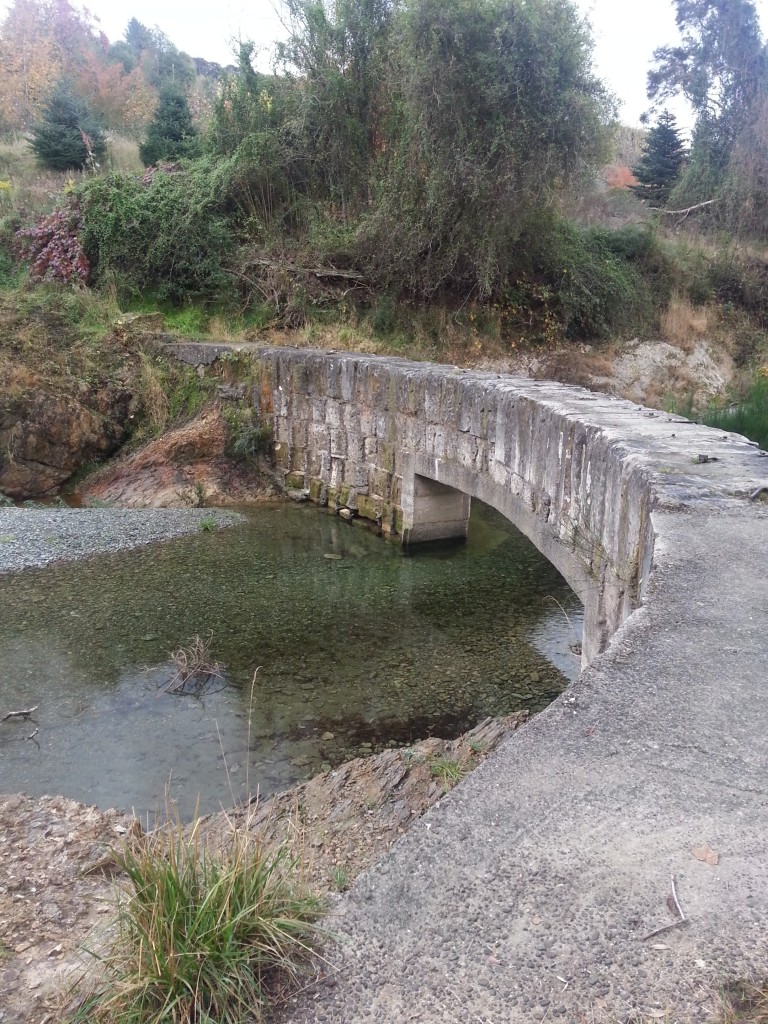
The dam was first built by Louis Schmoll, a German immigrant, in about 1870 to service the flour mill he was building. Things imploded dramatically however when he got into financial difficulties and while in the throes of bankruptcy he exposed a plot by two of his financial partners – James Gillham and George Cooper – to commit insurance fraud by burning down the mill (the two men had taken out a mortgage on the mill, insuring it in the process, as part of a plan to help Louis pay off some of his debts).
Louis claimed the men had demanded he set fire to the mill, providing him with turpentine to do so. He’d agreed out of fear but avoided carrying out the criminal scheme and eventually reported it to the police.
The lawyer for the two accused detailed no less than 19 “improbabilities” concerning Louis’s claim, such as why the accused would burn down a property that they had significant financial stake in? As far as the defence was concerned, this was a petty act of revenge on Louis’s part as his financial dealings with them started to go bad.
With the only evidence being the word of both parties involved, the magistrate ruled that the case could not be brought to trial and the accused were freed.
A charge of perjury against Louis quickly followed, but as it still could not be determined who was telling the truth, he was found not guilty.
After losing the unfinished mill in bankruptcy, Louis must have relocated to Invercargill, where his next claim to fame came when he attempted to murder his wife by shooting her in the head as she lay in bed with one of their children. Luckily the gun exploded, and she survived despite a wound to the forehead. He had been “jealous” of her for some months and had threatened to kill both her and their eldest son Louis several times.
I would have hoped that Sophia(the victim) and her children afterwards had a peaceful life away from Louis’s abusive ways, but it seems he continued to cause them trouble by attempting to withhold support for his family unless they agreed to live with him again. Understandably, Sophia was not interested in doing so.
Having learned Louis Schmoll was indeed capable of being an outrageous jerk, it seems more likely that he might also have fabricated those accusations against men he believed had crossed him.
Regardless, the mill and dam became the property of local shipping entrepreneur James Grave, who remodelled it in 1873. However the business was not a success due to the occasional low flow of the river. It eventually burned down for real and that was the end of that.
The mill does not remain, but one of my sources stated that the concrete supports for the wheel are still present.
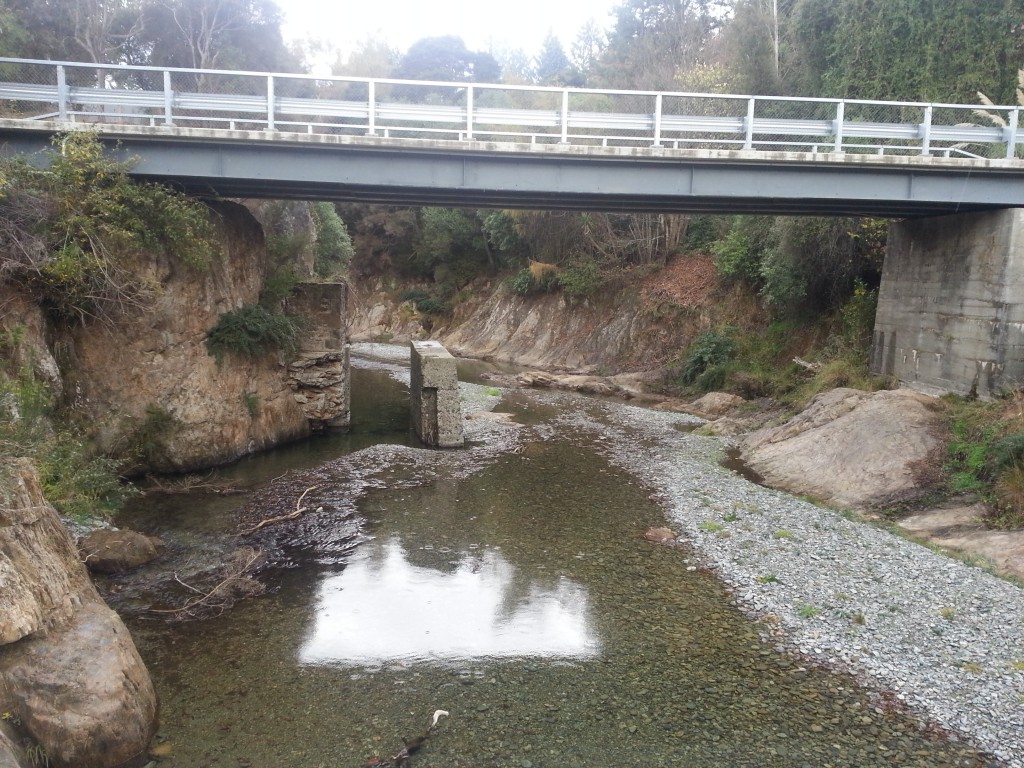
It was the descendants of James Grave who ensured that the dam would be conserved and categorised as a historic place. Good on them for preserving this window into the milling industry of the 19th century.
With that it really was time to go, so we set off southwards, hoping not to wake any sleeping dragons on the way.
References:
Thursday October, 13th 1870. North Otago Times, Volume XV, Issue 564, 14 October 1870, Page 2
Friday, October 14th, 1870. North Otago Times, Volume XV, Issue 565, 18 October 1870, Page 2
The Oamaru Times, AND WAITAKI REPORTER. TUESDAY, DECEMBER 13, 1870.
North Otago Times, Volume XV, Issue 581, 13 December 1870, Page 2
CHARGE OF ATTEMPTED MURDER. Southland Times , Issue 3682, 12 April 1880, Page 2
Resident Magistrate’s Court. Southland Times , Issue 4443, 6 October 1882, Page 2
Grave’s Dam by Karl Gillies
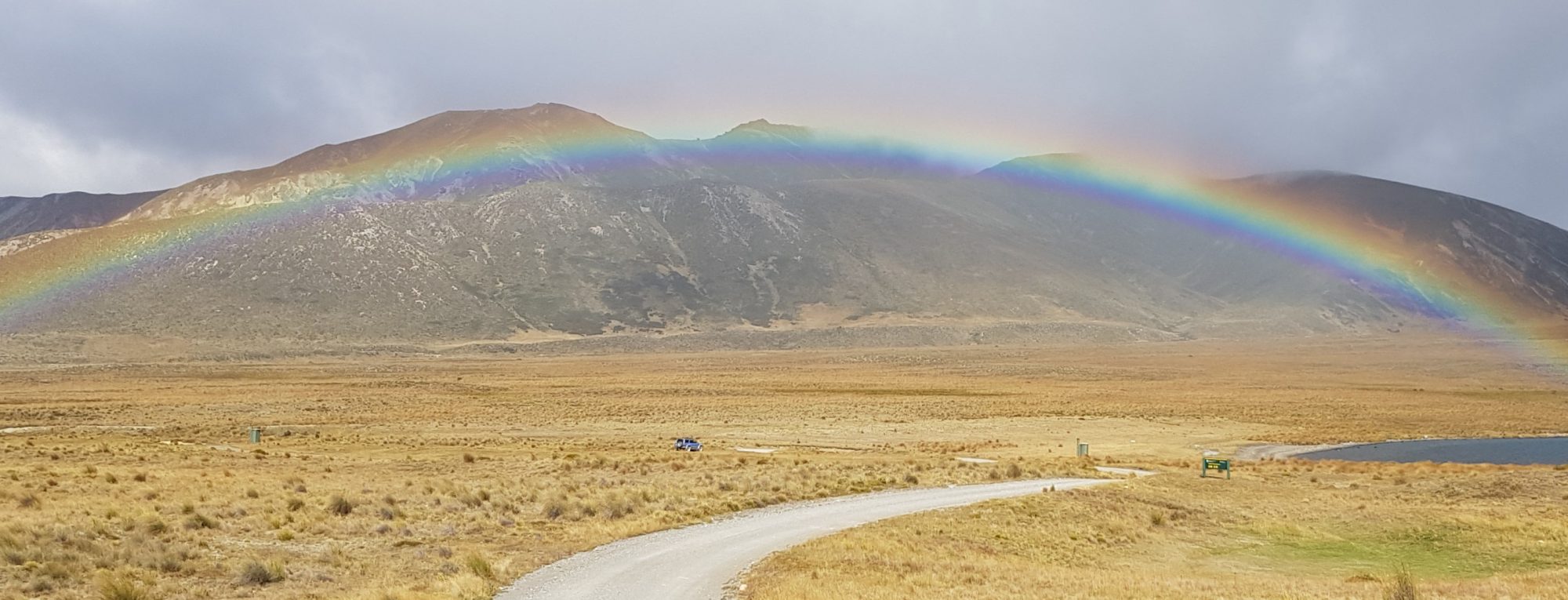

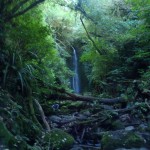
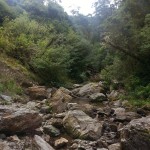
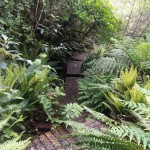
Another enjoyable outing. Well Done
Great report. Looking forward to the Herbert Forest next week. You can see what we do on the Taieri Recreational Tramping Club site. Regards
Thanks Clive, I’ve often visited that site when looking for ideas and information!